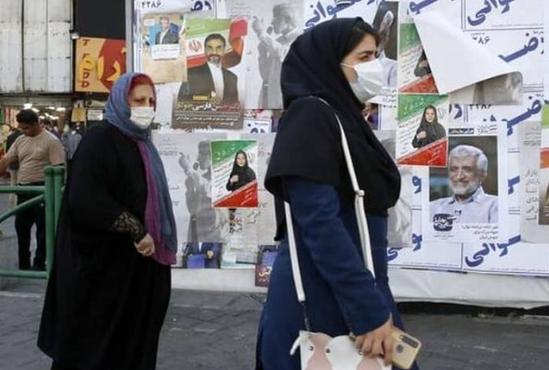An actual coup is feared. The Supreme Leader is now cracking down hard
The recent death of Iranian President Ebrahim Raisi has intensified speculation about the stability of Iran’s political future and the possibility of a military coup. Raisi’s passing is seen as a critical juncture, with elections set for late June amidst a backdrop of significant political and military upheaval.
Iran has been going through a series of major losses among its top ranks, with the deaths of key figures like Major General Qassem Soleymani and now President Raisi. These events have left a vacuum that has exposed the fragility of the Islamic Republic’s structure. The only prominent stabilizing figure remaining appears to be 85-year-old Ali Khamenei, the supreme leader, whose own health and the succession plan are subjects of intense scrutiny.
As discussions about succession unfold, many eyes are on Khamenei’s son, Mojtaba Khamenei, as a potential heir to the supreme leadership. This prospect is contentious due to the Islamic Republic’s historical rejection of hereditary rule, a principle established during the 1979 Revolution which overthrew the Pahlavi monarchy. Ali Khamenei’s rise to supreme leader, despite his limited theological qualifications, was a departure from tradition, facilitated by a change in the Iranian constitution. A similar path for his son would likely exacerbate claims of illegitimacy and could deepen political rifts.
The deaths of Iran’s president and foreign minister may have a limited impact on #US–#Iran relations. Iran’s upcoming presidential elections could influence a potential military escalation. It remains to be seen if “moderate” factions will be included in the political space —… pic.twitter.com/THPj79aU80
— معهد رصانة- RASANAH INSTITUTE (@rasanahiiis) June 5, 2024
The Islamic Revolutionary Guard Corps (IRGC), a powerful faction within Iran’s military and political landscape, plays a critical role in this dynamic. Historically celebrated as defenders of the revolution, the IRGC has significant influence over Iran’s domestic and foreign policies. The possibility that the IRGC might support or oppose Mojtaba Khamenei’s rise is a critical factor in the unfolding political drama. Their support was crucial for Ali Khamenei during past transitions, but it’s uncertain whether they would back another familial succession.
The IRGC’s stance is especially pivotal given the recent public unrest triggered by the death of Mahsa Amini in 2023, which marked a significant moment of public dissent against the regime’s strict social policies. This event underscored the diminishing public support for the regime, evidenced by the contrast between the muted response to Raisi’s death and the outpouring of grief for Soleymani, who was seen as a national hero.
Formal campaigning for Iran’s 14th presidential elections began on Monday, June 10, a day after Iran’s Ministry of Interior published the final list of approved candidates. The vote will be held on June 28.https://t.co/AohsFZRnyv
— Peoples Dispatch (@peoplesdispatch) June 11, 2024
In this context, the role of Esmail Qaani, leader of the Quds Force, becomes increasingly significant. As tensions with Israel and other regional actors escalate, Qaani’s leadership and actions could reshape perceptions of the IRGC and its alignment with the supreme leadership.
Key Points:
i. Iranian President Ebrahim Raisi’s recent death has intensified speculation about a possible military coup and has triggered a critical political transition in Iran with upcoming elections.
ii. The succession to the supreme leadership is in question, with many expecting Ali Khamenei’s son, Mojtaba Khamenei, to potentially rise to this role, despite historical opposition to hereditary rule in the Islamic Republic.
iii. The Islamic Revolutionary Guard Corps (IRGC), a powerful military and political force in Iran, may play a pivotal role in determining the next supreme leader, impacting the stability and direction of the country.
iv. The IRGC’s allegiance is uncertain, particularly in the context of widespread public dissent highlighted by the reaction to the death of Mahsa Amini in 2023, contrasting with the muted response to Raisi’s passing.
v. The political dynamics in Iran are further complicated by regional tensions and internal challenges, raising questions about the future of the supreme leader model and the overall governance structure of the Islamic Republic.
Lap Fu Ip – Reprinted with permission of Whatfinger News



